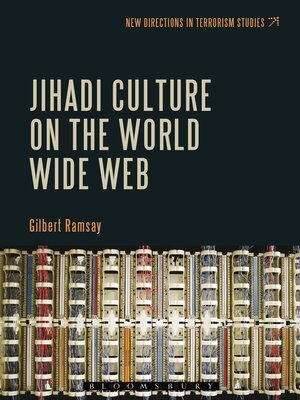
Sign up to save your library
With an OverDrive account, you can save your favorite libraries for at-a-glance information about availability. Find out more about OverDrive accounts.
Find this title in Libby, the library reading app by OverDrive.



Search for a digital library with this title
Title found at these libraries:
| Library Name | Distance |
|---|---|
| Loading... |
Choice Outstanding Academic Title 2014
This volume examines "jihadi" content on the Internet by drawing on both Arabic and English primary source materials. After examining this content as digital media, the work looks at how it is productively consumed by online communities, including how "jihadi" individuals construct themselves online and how jihadism is practiced and represented as an online activity. The work also discusses the consumption of such jihadi media by those who are hostile to radical Islam and the relation between fantasy, pleasure, ideology, and ordinary life.
This unique survey features case studies, such as the cyberjihadi "Irhabi 007," pro-US and Israeli "patriots" who are often openly Islamophobic, and "Infovlad" —a forum that became the meeting place for radical Islamists and radical freelance "counter terrorists."
This innovative approach to studying violent content on the Internet is a significant contribution to the literature that will appeal to anyone interested in political violence, terrorism, and political communication.
This volume examines "jihadi" content on the Internet by drawing on both Arabic and English primary source materials. After examining this content as digital media, the work looks at how it is productively consumed by online communities, including how "jihadi" individuals construct themselves online and how jihadism is practiced and represented as an online activity. The work also discusses the consumption of such jihadi media by those who are hostile to radical Islam and the relation between fantasy, pleasure, ideology, and ordinary life.
This unique survey features case studies, such as the cyberjihadi "Irhabi 007," pro-US and Israeli "patriots" who are often openly Islamophobic, and "Infovlad" —a forum that became the meeting place for radical Islamists and radical freelance "counter terrorists."
This innovative approach to studying violent content on the Internet is a significant contribution to the literature that will appeal to anyone interested in political violence, terrorism, and political communication.







